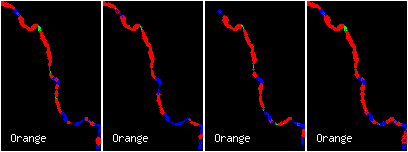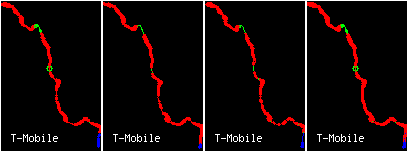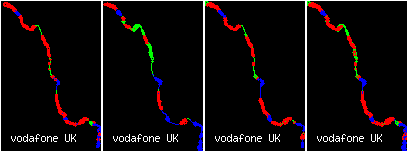Enrico Zini: rc-buggy packages sorted by popularity
rc-buggy packages sorted by popularity
After doing a round of tag reviews so that we release lenny with
the latest tag contributions, I still had a bit of spare time.
Since people
are urging to fix the last
bugs I thought I could contribute a list of RC-buggy packages
sorted by popularity:
This can be run on
#!/usr/bin/python import urllib2 import sys, re #, gzip PKGRE = re.compile(r'<strong>Package: </strong><a href="[^"]+" name="([^"]+)">') POPCONRE = re.compile(r'^(\d+)\s+(\S+)') PKGMAPRE = re.compile(r'^([^(]+)\(([^)]+)') COMMASPLIT = re.compile(r'\s*,\s*') # Allow to download other package views if len(sys.argv) > 1: url = sys.argv[1] else: url = "http://bts.turmzimmer.net/details.php" def read_packages(url): "Download the list of rc-buggy packages" fd = urllib2.urlopen(url) for line in fd: mo = PKGRE.search(line) if mo: yield mo.group(1) # FIXME: this is a deprecated data source, but at the moment it is just what # is needed def read_bintosrc(url = "http://qa.debian.org/data/ddpo/results/ddpo_packages"): "Download the binary to source package map" fd = urllib2.urlopen(url) for line in fd: mo = PKGMAPRE.search(line) if mo: src = mo.group(1) bin = COMMASPLIT.split(mo.group(2)) for p in bin: yield p, src def read_popcon(url = "http://popcon.debian.org/by_inst"): "Download popcon information" fd = urllib2.urlopen(url) # It doesn't work on urllib2 objects because it wants tell() #fd = gzip.GzipFile(fileobj=fd, filename=url, mode="rb") for line in fd: mo = POPCONRE.match(line) if mo: yield mo.group(2), int(mo.group(1)) print "Reading mapping of binary packages to source packages..." bin2src = dict(read_bintosrc()) print "Reading popcon scores..." # We actually want the score of source packages, and for it we use the score of # its binary package with the highest score scores = dict() for pkg, score in read_popcon(): pkg = bin2src.get(pkg, pkg) if pkg not in scores: scores[pkg] = score #scores = dict(read_popcon("http://popcon.debian.org/by_inst.gz")) print "Reading list of rc-buggy packages..." # The bug page has a mix of source and binary packages: convert all to source # packages packages = sorted(read_packages(url), key=lambda x:scores.get(bin2src.get(x,x), 0)) for p in packages: print scores.get(bin2src.get(p,p), 0), p
people.debian.org as
~enrico/popzimmer (0 is the rank of packages that for
some reason cannot be mapped to any rank):
$ ~enrico/popzimmer
Reading mapping of binary packages to source packages...
Reading popcon scores...
Reading list of rc-buggy packages...
0 roxen-fonts-iso8859-2
2 dpkg
11 pam
61 glibc
61 libc6
123 initramfs-tools
149 bind9
150 grub
180 portmap
213 nfs-common
279 libgl1-mesa-dri
298 libsnmp-base
298 snmpd
309 avahi
397 mysql-dfsg-5.0
408 xserver-xorg-input-wacom
409 xserver-xorg-video-vesa
428 docbook-xml
499 openoffice.org-core
567 xine-lib
600 evolution-data-server
669 eog
671 xserver-xorg-video-intel
691 epiphany-browser
691 epiphany-gecko
695 kdelibs4c2a
698 uswsusp
754 guile-1.6
959 gpm
964 cups
990 kdebase
1002 ghostscript
1069 giflib
1076 xulrunner-1.9
1177 libapache2-mod-perl2
1217 vlc-nox
1229 kernel-package
1311 kdeutils-dev
1520 libparted1.8-10
1767 wireshark
1785 selinux-policy-default
1908 dia
1943 htop
1983 boost
2140 cantlr
2145 transmission
2159 emacs22
2312 swfdec-mozilla
2449 eclipse
2449 libswt3.2-gtk-java
2728 lilo
2898 libnss-ldap
3013 java-access-bridge
3051 blender
3099 libtemplate-perl
3499 fglrx-atieventsd
3602 virtualbox-ose
3619 jfsutils
3806 anjuta
3962 kbuild
4076 libgnustep-gui0.14
4222 libwebkit-1.0-1
4332 rosegarden
4412 matplotlib
4412 python-matplotlib
4950 mail-notification-evolution
5195 nut-cgi
5273 sbcl
5538 ruby1.9
5679 kmymoney2
6076 websvn
6147 miro
6264 gnat-4.1
6431 gallery2
6478 gnome-chess
6512 joystick
6862 istanbul
6937 wordpress
7476 luatex
7635 csound
7635 python-csoundac
8257 libpam-mount
8471 wmcpuload
8631 nbsmtp
8642 oxine
8774 axiom
8949 libengine-pkcs11-openssl
9052 clamav-getfiles
9221 open-iscsi
9262 ptex-bin
9701 egroupware-core
10012 debian-cd
10127 libjogl-java
10453 libjson-xs-perl
10698 gcjwebplugin
10736 request-tracker3.6
11294 python-extclass
11518 rkward
11600 alevt
12929 otrs2
13205 bindgraph
13956 icecc-monitor
14223 netmaze
14505 cdebconf
14526 mumble
14687 fnonlinear
14724 recite
14789 jbidwatcher
15766 libnss-ldapd
15812 glpi
15905 lustre-source
15982 win32-loader
16232 ampache
17168 libghc6-missingh-dev
17311 acl2
17830 apertium
18462 emacspeak
18469 glassfish
19257 isight-firmware-tools
19719 libnagios-object-perl
20144 libwx-perl
20465 dns2tcp
21614 python-kinterbasdb-dbg
21690 hf
21902 libcobra-java
22365 tomcat6
22573 libphp-snoopy
23501 coco-java
23926 boxbackup-server
24009 libghc6-wash-dev
26323 libdesktop-notify-perl
26439 opendb
28426 adolc
28795 xorp
29986 libgdata-java
31262 libjboss-serialization-java
31472 pixelpost
31658 cournol
32939 mediamate
34365 gforge-plugin-scmcvs
34659 libgearman-client-async-perl
42233 libhamcrest-java
48076 mahara
55303 mxallowd
85881 roxen-fonts-iso8859-1
So, if you don't know from what package to start fixing bugs,
"Begin at the beginning,", the King said, very gravely, "and go
on till you come to the end: then stop."
 I bought an EEE 901. More on that later.
I bought an EEE 901. More on that later.




 (Note: this is a long post)
(Note: this is a long post) I’ve been provided the latest Verizon and Sprint EVDO cards to evaluate in the field for the past month. I now have to decide which to keep. It’s a close call (no pun intended).
I’ve tested them both over various areas in Greater Boston and Washington DC. Key observations:
(1) Speed: The Verizon card is usually faster. I’ve clocked up to 2.5 Mbps using the
I’ve been provided the latest Verizon and Sprint EVDO cards to evaluate in the field for the past month. I now have to decide which to keep. It’s a close call (no pun intended).
I’ve tested them both over various areas in Greater Boston and Washington DC. Key observations:
(1) Speed: The Verizon card is usually faster. I’ve clocked up to 2.5 Mbps using the 
 In my
In my